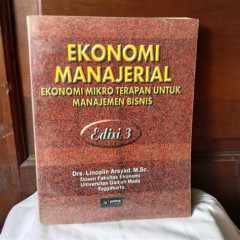Ditapis dengan

Nahdlatul Ulama's Strategic Role in Shaping Indonesian Foreign Policy
This article analyses the strategic influence of Nahdlatul Ulama (NU) on Indonesian foreign policy using constructivist theory and social identity theory as frameworks. It contends that NU's contributions are motivated by its intrinsic identity and principles, including the promotion of moderate Islam, rather than by external influences. This research utilizes the G20 Religion Forum (R20) and t…
- Edisi
- VOL. 3 NO. 2
- ISBN/ISSN
- 2829-3568
- Deskripsi Fisik
- 33 hlm, 28 cm
- Judul Seri
- -
- No. Panggil
- J 297.272 Mus

Power, Norms, and Trust: Interrelated Factors Impacting ASEAN Management of S…
The paper offers a detailed empirical account of ASEAN diplomacy, and contributes to international relations literature more generally by theorizing the interrelationship between dependency, trust, and the practice of diplomatic norms. Most importantly, it provides the operationalization and application of the concept of trust in the South China Sea disputes, for the first time, to explain ASEA…
- Edisi
- VOL. 3 NO. 2
- ISBN/ISSN
- 2829-3568
- Deskripsi Fisik
- 45 hlm, 28 cm
- Judul Seri
- -
- No. Panggil
- J 297.272 Mus

Democracy in Flux: Political Alliances and the Role of Religion in Indonesia …
This paper analyzes how political alliances influence the reconfiguration of political parties in the two countries. Contributing to the literature on change and adaptation in democracies, as well as addressing the scarcity of comparative studies between Indonesia and Turkey, this paper poses the following questions: How are political alliances formed and structured in Indonesia and Turkey? Wha…
- Edisi
- VOL. 3 NO. 2
- ISBN/ISSN
- 2829-3568
- Deskripsi Fisik
- 39 hlm, 28 cm
- Judul Seri
- -
- No. Panggil
- J 297.272 Mus

Al-Attas, Islamization and Pancasila: The Impact of Attasian Thought on Polit…
This article tracks the influence of specific ideas of the Malaysian Muslim philosopher Syed Muhammad Naquib Al-Attas on Indonesian Islamic political thought. The primary focus of the article is to outline the impact that the adoption of specific concepts from Al-Attas have had on the trajectory of Indonesian Islamic thought and Islamist politics. In particular, it focuses on how the concepts o…
- Edisi
- VOL. 3 NO. 1
- ISBN/ISSN
- 2829-3568
- Deskripsi Fisik
- 33 hlm, 28 cm
- Judul Seri
- -
- No. Panggil
- J 297.272 Mus

Does Religious Identity Moderate Economic Voting? Evidence from Indonesia
Scholars have long suggested that economic voting is contingent on political factors, but how social identity contributes to such contingent economic voting has been overlooked. While the literature suggests the presence of direct function of religion on voting decisions, we are not sure about religion's other functions. By treating religion as a social identity, this article seeks to uncover a…
- Edisi
- VOL. 3 NO. 1
- ISBN/ISSN
- 2829-3568
- Deskripsi Fisik
- 40 hlm, 28 cm
- Judul Seri
- -
- No. Panggil
- J 297.272 Mus

Precarious Coexistence in Maluku: Fear and Trauma in Post-Conflict Christian-…
This paper examines the precarious coexistence between Muslims and Christians in post-conflict Maluku, Indonesia. This ongoing reality in Maluku calls for a reassessment of the normative tendency in peace discourses, which expect peace to be elther ideal or impaired and tend not to be contextual in evaluating peace. To understand post-conflict coexistence better, we need to comprehend how emoti…
- Edisi
- Vol. 2 No. 1
- ISBN/ISSN
- 2829-3568
- Deskripsi Fisik
- 22 hlm, 28 cm
- Judul Seri
- -
- No. Panggil
- J 297.272 Mus

Social Media as a Space for Islamophobia: COVID and Social-Environment Crisis…
The COVID-19 pandemic has exposed an emergency of prejudice and savagery via social media by traditional 'patriots' in India. Meta, Twitter, and Instagram have turned into digital spaces full of deception about the pandemic. Hindu Instagram accounts such as @Hindu_secrets and @Hindu_he_hum have been unwavering and dedicated in spreading Islamophobic crusades by utilizing the COVID-19 pandemic. …
- Edisi
- Vol. 2 No. 1
- ISBN/ISSN
- 2829-3568
- Deskripsi Fisik
- 25 hlm, 28 cm
- Judul Seri
- -
- No. Panggil
- J 297.272 Mus

"Hearts, Hands and Heads": Exploring the Relationship Between Disengagement a…
This article seeks to contribute to the debate about how disengagement functions and stands as a practical and effective counterterrorism methodology, and is based on detailed analysis of field work and project implementation in Indonesia. This article and the methodologies implemented and tested are grounded in previous research on disengagement of Indonesian jihadists and countering violent e…
- Edisi
- Vol. 2 No. 1
- ISBN/ISSN
- 2829-3568
- Deskripsi Fisik
- 20 hlm, 28 cm
- Judul Seri
- -
- No. Panggil
- J 297. 272 Mus

Ekonomi manajerial : ekonomi mikro terapan untuk manajemen bisnis
- Edisi
- 3
- ISBN/ISSN
- 979-503-002-7
- Deskripsi Fisik
- xxv, 461 hlm, 28 cm
- Judul Seri
- -
- No. Panggil
- U 658.403 Lin e
- Edisi
- 3
- ISBN/ISSN
- 979-503-002-7
- Deskripsi Fisik
- xxv, 461 hlm, 28 cm
- Judul Seri
- -
- No. Panggil
- U 658.403 Lin e

Jejak Keteladanan kiai Moh Tidjani Djauhari pribadinya dalam kenangan
- Edisi
- -
- ISBN/ISSN
- 978-623-6600-31-3
- Deskripsi Fisik
- -
- Judul Seri
- -
- No. Panggil
- T 922.97 Iwa j
- Edisi
- -
- ISBN/ISSN
- 978-623-6600-31-3
- Deskripsi Fisik
- -
- Judul Seri
- -
- No. Panggil
- T 922.97 Iwa j
 Karya Umum
Karya Umum  Filsafat
Filsafat  Agama
Agama  Ilmu-ilmu Sosial
Ilmu-ilmu Sosial  Bahasa
Bahasa  Ilmu-ilmu Murni
Ilmu-ilmu Murni  Ilmu-ilmu Terapan
Ilmu-ilmu Terapan  Kesenian, Hiburan, dan Olahraga
Kesenian, Hiburan, dan Olahraga  Kesusastraan
Kesusastraan  Geografi dan Sejarah
Geografi dan Sejarah